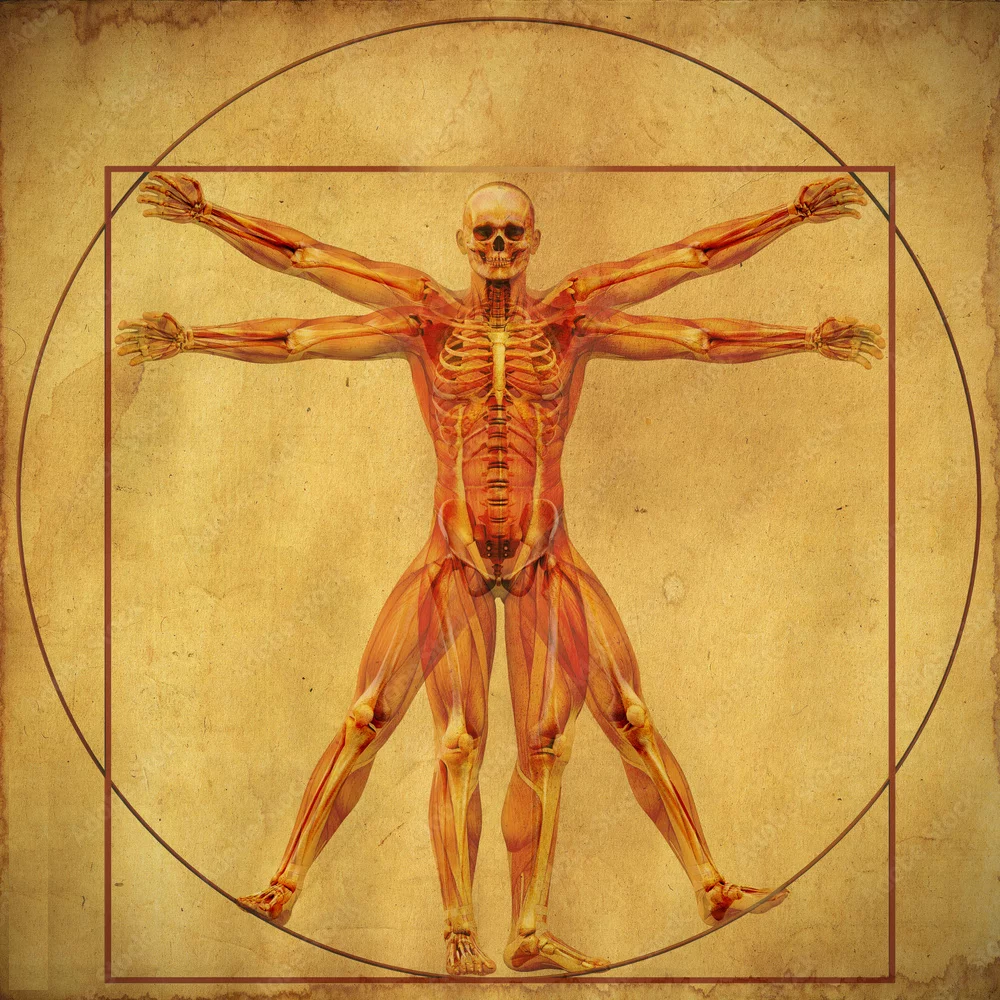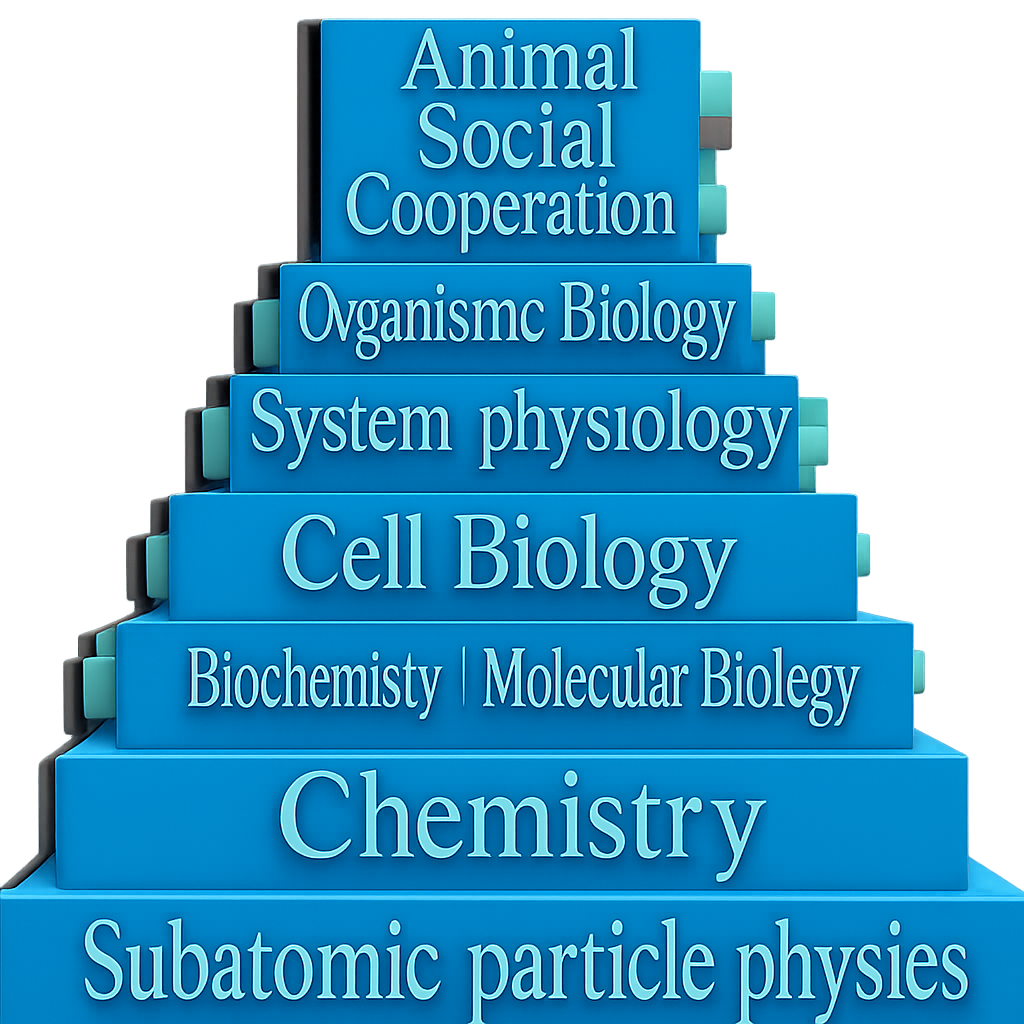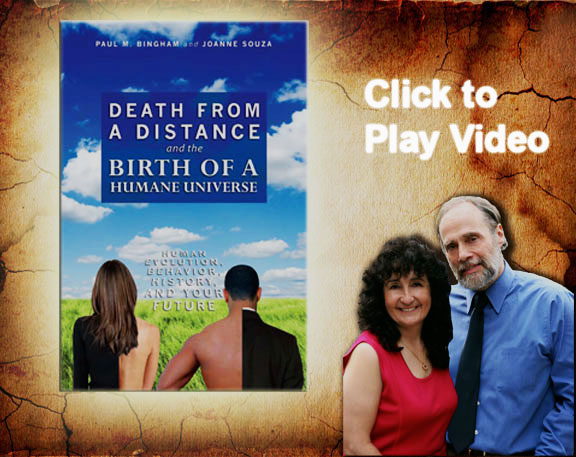Book Summary
Primary topics covered in the book.
Family Behavior
Why do my siblings, my children or my mate behave as they do?
Social Injustice
Why are violence and chronic poverty so pervasive?
Economic Systems
Why does the economy that supports me and my family work as it does?
Human Sexuality
Why are my sexual impulses so complicated?

Human Evolution and the Question of Uniqueness
Paul M. Bingham and Joanne Souza's Death from a Distance and the Birth of a Humane Universe: Human Evolution, Behavior, History, and Your Future is an utterly fascinating voyage into the evolution of human beings and of our properties, social behavior, history, and contemporary lives. We learn more than the science of being human; we are pulled into what might be the most significant question of the century: Of all living things on this planet, what makes humans so utterly unique?
The elements of our evolution - chemistry, history, psychology, behavior, environment, etc. are broken down into building blocks, comprehensible components. Bingham and Souza have assembled these components into a novel answer to this most significant question, a powerful gestalt, a theory of human uniqueness that clearly explains how we human creatures first came into existence and then evolved to what and who we are today.

How We Became Human?
The Evolution of Cooperation: How Conflict Gave Rise to Humanity
From what the authors term our original "accidental evolution," their Self-Interested Enforcement Theory (SET) explains that humans first acquired something unprecedented - the ability to inexpensively coerce one another. Wonderfully and ironically, from this new capacity for mutual violence emerges the first real capacity for peace, for our unique "common humanity." Our properties all evolve and our history emerges as we deploy this novel coercive capacity in new ways to engender that most fundamental of human behaviors, true collaboration, at ever larger scales. We not only find insight into how and why we came to be, we also acquire the ability to take command of our common future in a fundamentally new way. This is a disquieting, and yet ultimately uplifting, exploration into the very best of our potential.
Death from a Distance and the Birth of a Humane Universe
The book will share with you a powerful new scientific understanding of how we came to be human - complete with our powerful minds; our elite language abilities; human evolutionour vast economic systems; our rich, strong belief systems; and our unique social and sexual behaviors. Based on decades of research, we find that the structure of our personal and public lives, for better and for worse, emerges from our uniquely human evolutionary past. Through comprehending this past we discover why we feel and act as we do and why our political and economic lives play out as they have. We also gain a deep new understanding of the vast sweep of our history for the first time - from the agricultural revolutions and the rise of the first ancient states through current world affairs. From these rich insights come the tools that will allow all six billion of us to take command of our common future - building a humane, fulfilling, wealthy, peaceful world for ourselves and our descendants.
What Others are Saying
“[Death from a Distance] comprehensively unifies what it means to be human and gives readers the skills to analyze how our humanness continues to shape our world. Scholars, students, and general readers will all come away from this book with new insight on the human experience.”
Clarion Foreword Reviews
An Independent Reviewer
“ Bingham and Souza make some pretty controversial assertions - assertions, though, that are backed by their meticulous approach to evolutionary history...
The implications of their theory are great, they believe, because it helps to explain the course of human history and ways we as a species can achieve peace... ”The Stony Brook Press
Feburary 12th, 2010. Volume 31, Issue 8
“It's the question that Charles Darwin himself could not answer: What makes human interaction so unique? In their new book, Death From a Distance and the Birth of a Humane Universe, Stony Brook University colleagues, collaborators, and researchers Paul M. Bingham and Joanne Souza argue that humans are unique among all animals for a single, simple reason: our ability to manage conflicts of interest. This exclusive capacity is at the core of this far-reaching theory of everything human. ”
The Brook
Winter 2010, Volume 9, No. 1 (pdf)
“It is not often that readers are offered a new theory of human existence encompassing our origins, our unique properties as biological creatures, the agricultural revolution, and the rise of modern states, but this book promises just that. The authors argue that the first humans of two million years ago evolved the capacity to throw stones accurately and thus kill conspecifics from a distance. This capacity for "law enforcement" allowed unrelated individuals to cooperate in ever larger aggregates, thus forever altering the social environment and paving the way for democratization on a global scale. Such bold claims require strong support. The authors are diligent in building their foundation, even if some of their premises can be challenged. This book is surely provocative. Reading it carefully is well worth the effort. ”
Prof. G. Philip Rightmire
Research Associate, Department of Anthropology, Harvard University Distinguished Professor, Binghamton University
With "elite throwing" as a unifying theme, Bingham and Souza launch an epic journey through two million years of human evolutionary history. Following lucid explanations of scientific method and the evolutionary process, the authors present a theory explaining the emergence of unique human behaviors, meticulously documenting the evidence. The book is so engagingly written that readers with all backgrounds will be drawn to critically examining the new perspectives on current and past human behaviors.
Mary W. Marzke
Professor emerita, School of Human Evolution and Social Change, Arizona State University
“I should point out that the manuscript is magnificent! I am amazed that someone classified as having interests only inside cells can be as wise [] about ecology and evolution. I also think your language skills are terrific”
George C. Williams
1999 Crafoord Laureate, Evolutionary Biology
